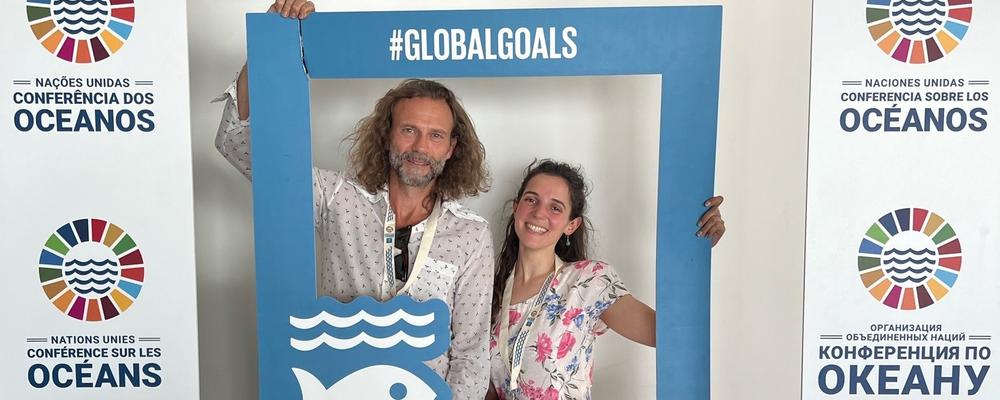Tell us more about the side event you participated in?
– I participated in the side event “The Ocean Literate Society - Youth Engagement and Intergenerational Collaboration”, which was divided into 5-minute pitches and a mini-fair. I pitched "Blue food in the schools - Build your own aquaponics", which will also be my master thesis project next academic year, and also took part in the mini-fair together with my thesis supervisor at the University of Gothenburg Carl-Johan Skogh. In the mini-fair, we wanted to engage the participants in an interactive way. Therefore, we asked them questions about aquaponics and its implications and also answered questions put forward from the participants to us.
Who took part in the side event?
– Around 50 people attended the event physically, representing different organisations and non-government organisations (NGO's), and around 300 people attended online. The physical participants either worked within the theme of the side event or were interested in the theme. The Minister for International Development Cooperation of Sweden, Matilda Ernkrans, joined us during the mini-fair and made her own algae salt at our stand.
What kind of feedback did you receive from the participants?
– The participants were enthusiastic about the format of the side event with 5-minute pitches and a mini-fair. All in all, there were 10 pitches. This allowed us to maintain a lively and focused atmosphere, whilst displaying a wide range of realities.
During the mini-fair, there were several different stands. Ours focused on making algae salt and “pick one, leave one” questions, while at another stand you could make your own sign to protest against climate inaction. All of this enabled everyone not only to have an active part but also to start reflecting on the shared experiences. Some of the participants wanted to see events like ours in the main venues, instead of as side events!
This type of side event, what kind of impact did it have?
– In my opinion, this event could have an impact on the brief and long term future of some of the participants. The mini-fair, in particular, had a part in this. It showed - through shared and fun experiences - how easy it can be to start a non-hierarchical conversation, exploring different points of views and being encouraged to take climate action.

